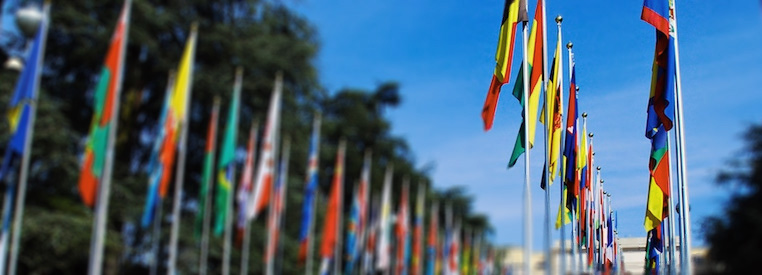19 Nov 2009
The Euro-Mediterranean Human Rights Network (EMHRN), the International Commission of Jurists (ICJ), and the Observatory for the Protection of Human Rights Defenders, (a joint programme of the International Federation for Human Rights (FIDH) and the World Organisation Against Torture (OMCT)), today condemned the decision of the Damascus Section of the Syrian Bar Association to prohibit lawyer and leading human rights defender Muhannad Al-Hassani from practicing law for the rest of his life. Among the grounds upon which the disbarment was ordered was that Muhannad Al-Hassani is “the President of an unauthorised organisation (the Syrian Organization for Human Rights)”.
The above-mentioned organisations called on the Syrian Bar Association to seriously reconsider the charges against Muhannad al-Hassani and the decision to permanently disbar him when it hears the case on appeal.
Muhannad al-Hassani has been held in detention in Damascus since 28 July and faces criminal charges of “weakening national sentiments,” and “spreading false news”, under Article 286 of the Syrian Penal code. The charges, which arise from his observation and reporting of an open trial before the State Security Court, carry a prison sentence of up to 15 years.
Muhannad al-Hassani is President of the Syrian Organization for Human Rights
(Swasiya) and a Commissioner of the ICJ. The Syrian authorities have denied official registration of Swasiya during the past five years. The grounds of the referral in his disbarment proceedings include the accusation of “publishing false and exaggerated information that weakens the state and its reputation abroad”, and of “attending and documenting the proceedings of the Supreme State Security Court without being the lawyer of those involved in these proceedings.”
The EMHRN, ICJ and the Observatory carried out two high-level missions to Damascus to monitor the disciplinary trial of Muhannad Al-Hassani before the Damascus section of the Bar Association, which took place on October 20 and November 10, 2009. Over the course of the two missions, the organisations met with the presidents of the Syrian Bar Association, Walid Attech and Nizar Assakkef; the President of Damascus section of the Syrian Bar Association, Jihad Al-Lahham; the Public Prosecutor, Amina Achamat, as well as other representatives of the Syrian legal and judicial systems.
“The disciplinary trial of Al-Hassani before the Damascus section of the Bar Association plainly failed to meet international standards of due process. During the proceedings, the disciplinary Committee gave no credible evidence that Al-Hassani had published any false or exaggerated information of any kind”, said Wilder Tayler, ICJ Acting Secretary General. In addition, “Under the State Security Court Law and international standards, proceedings of the Court are presumptively public. Reporting on public proceedings cannot be criminalised under any circumstance. The charges brought against Al-Hassani for reporting on these proceedings amount to a form of punishment for the exercise of his legitimate right to freedom of expression and the appropriate exercise of his professional function as a lawyer,” Souhayr Belhassen, FIDH President, added.
Lawyers have the right to raise concerns about the fairness of trials or other legal proceedings. It is also important that members of the legal profession pay particular regard to exceptional and special courts that operate outside the civilian judicial system and its rules and procedures.
“Muhannad Al- Hassani has performed his legal functions in accordance with recognised professional duties, standards and ethics. Disbarring him for a lifetime period for carrying out these functions is a strong message to all human rights lawyers and defenders in Syria,” said Wilder Tayler. “This heavy sanction seems aimed to intimidate and silence lawyers who promote the rule of law; defend the human rights, and challenge the legal framework imposed by the almost-permanent state of emergency in Syria,” Kamel Jendoubi, President of the EMHRN added.
The disbarment of Al-Hassani also constitutes an overall attack on the legal profession in Syria and its independence. Under international standards, bar associations must be independent and should defend their independence against any improper restrictions or infringements, including by public officials. Bar Associations should ensure that lawyers are not harassed or persecuted for carrying out their legitimate work as lawyers or for exercising their right to freedom of expression.
“The Syrian Bar Association should be defending Al-Hassani and other lawyers who promote the rule of law and human rights in Syria, not persecuting them,” said Kamel Jendoubi. “The proceedings against Al-Hassani and the decision to disbar him for a lifetime period raise serious concerns about the independence of the Syrian Bar Association,” concluded Eric Sottas, OMCT Secretary General.
Background
On 19 July, after observing a trial before the State Security Court, a clerk, acting on orders from the chief prosecutor, seized and destroyed Muhannad Al-Hassani’s notes from the proceedings. The following day, Al-Hassani received a phone call from Syrian intelligence officials instructing him to report to their facility for questioning.
Muhannad Al-Hassani was arrested on July 28 after multiple questioning sessions on July 26 and 27. The reported ground for the arrest was that he had allegedly reported on and publicized the trial observations that he carried out before the Sate Security Court. An investigating judge charged him, under Article 286 of the Syrian Penal code, with “weakening national sentiments,” and “spreading false news.”
Prior to his arrest, Muhannad Al-Hassani had come under increasing and undue pressure as a result of carrying out his lawful professional functions. He has been subject to a travel ban during the last five years, which has prevented him from representing the ICJ or participating in ICJ activities on various occasions. His office, telephone communications and e-mails have also been under constant surveillance by Syrian security forces.
For more information, please contact
Marc Schade Poulsen, EMHRN Executive Director, at +45 32 64
17 16
Saïd Benarbia, Middle East & North Africa Legal Adviser, at
+ 41 22 979 38 17
FIDH: Gaël Grilhot / Karine Appy: + 33 1 43 55 25 18
Delphine Reculeau, Coordinator of the Observatory for the Protection of Human Rights Defenders at OMCT, at + 41 22 809 49 39
